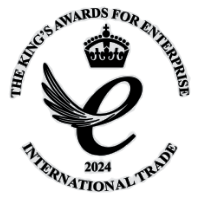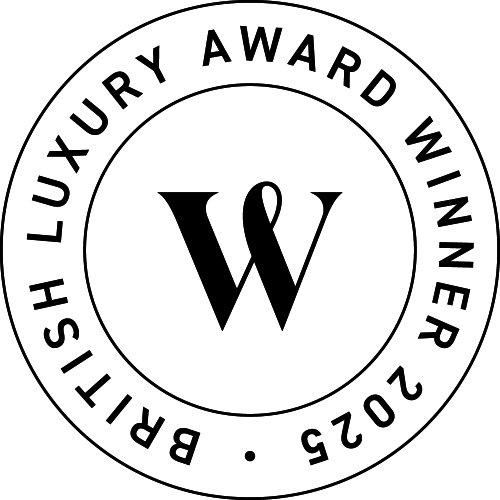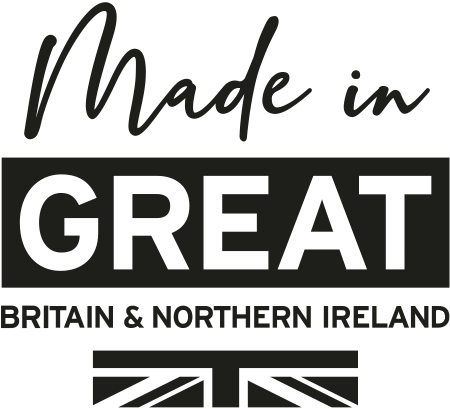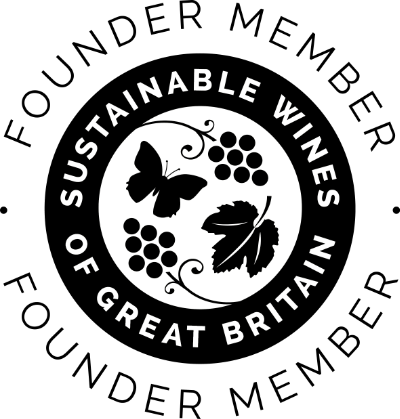It’s a bright spring morning as Laura Rhys MS, Mary Bridges and Sara Dooley sit down together in The Hide, our sleek tasting room, perched above the winery. Together, these three women offer a cross-section of Gusbourne expertise, from the way we manage the cellar to the way we make and sell our wine.
It’s usually a technical wine grading or a blending session that brings our Global Brand Ambassador, our Oenologist and our Cellar Supervisor around a table. But today International Women’s Day 2023 is on the agenda – and there are important questions to ask and answer.
__
The wine industry is, perhaps, still perceived to be male dominated, so it’s interesting to hear views from the inside. We start with a big question: what role, if any, does IWD have in wine?
“The wine industry should be inclusive, 365 days of the year – you don’t need a particular day to focus on it,” says Laura, our Global Brand Ambassador. Mary and Sara likewise agree.
“If I look at my experience so far,” says Sara, our Cellar Supervisor, “maybe half the wineries I've worked for have had female head winemakers. Whether that's a representative view of the whole industry is it's difficult to say. But, for the younger generation at least, this doesn’t feel like a male-dominated industry.
“That’s not to say there’s not more to do. I think we have a collective responsibility to make the industry more inclusive across the board. Wine is such a diverse industry, there’s something for everyone.”
“It seems to me,” says Mary, Gusbourne’s Oenologist, “that having a day to celebrate what women are doing in wine has been really useful in the past. The industry has taken massive leaps forward over the past decade. And, although being put in the spotlight for a day can feel awkward – or like an unfair opportunity – I think that anything which helps show women that they have an important place in this industry is worth doing.”
Laura brings a slightly different perspective here: “When it comes to wine positions in hospitality, women tend to be underrepresented,” she says. “I think it’s important to show women that there’s a place for them at the top of the Sommelier industry. That being said, my experience working in wine has been nothing but positive.”
__
Gusbourne’s talented team is a balanced one. As women who hold interesting, varied roles, do Laura, Mary and Sara feel they have a responsibility to the next generation of winemakers? “Absolutely,” says Mary. “In fact, I’ve recently been back to Plumpton – where I studied – to talk about my career path and what I now do at Gusbourne.
“Most students are more interested in the primary production side of winemaking, but I think that’s because it has the most obvious appeal.”
Of course, as the English wine industry develops, so too do the opportunities within it. “So much has changed in 20 years. There are far more options available now than when I first got into wine,” says Laura. “And the path into wine is perhaps more open, with more democratic routes in.
“I feel like the sommelier industry has been – and continues to be – driven by a sense of camaraderie. And this desire to push forward as a whole.”
Mary adds: “I think this is so true for the world of wine. It's more than just the UK. It’s really buzzing and everyone’s in it to support each other.”
__
And what about in their own wine careers, which role models have been inspirational?
“Two of the most serious female winemakers who I’ve ever met were at Merry Edwards in the States,” says Mary.
“They both did incredible things in their careers, but they had families and young children and normal lives too. And I think it’s so important to see this as an industry that’s not just inclusive for individuals, but for families too.”
“Gusbourne does have a family focused feeling,” says Laura. “And it’s amazing when you think of all those trail blazing women in the industry who, maybe 30 or 40 years ago have worked to make such balance possible for women today.
“People like Jancis Robinson or Serena Sutcliffe – amazing women who are very much at the top of their game. They have had an enormous ripple effect and inspired so many people.”
__
Back in the world of Gusbourne, we talk about the various projects which are underway – and the challenges and opportunities they present. “I’ve just bottled my first wine – my baby Rôtie,” says Mary. “It’s very exciting. And we’re going to release it in a different way from normal. I can’t say too much about it yet. But I can’t wait for people to try it.”
“One of the things I love about Gusbourne is that there is a lot of opportunity if you’ve the right attitude,” says Sara. “If you’re passionate. If you’re interested. We all work hard creating the core wines, but then there are little outlets for personal creativity too.
“At the moment I’m working on a project with a winemaker from Portugal. He wanted to do a collaboration where he sent over an amphora. It’s exciting to be trusted with something like that – to be given the opportunity.”
Much of Laura’s time is spent with customers and the trade, presenting our wines. “The international launch of Fifty One Degrees North will take over for the next few months,” she says. “Norway, Austria, Singapore, Tokyo, Hong Kong, New York, Vegas and Switzerland. It’s always awesome to chat to people around the world about English sparkling wine and to show them what we’re doing.”
__
Before we let the trio get back to their busy workloads, there’s one final question: what was the last, best glass of wine you drank?
Mary kicks us off: “This isn’t a specific producer, but just a style,” she says. “It was my birthday recently and we were in Portugal for a few days. And, oh: the Vinho Verde. Really chilled, really easy drinking – in that time and place, with loads of fresh grilled seafood and great company, it was just the best thing.”
“Mine is quite sentimental,” says Laura. “I had some very dear old friends over to lunch at the weekend,” she says. “My friend, who’s a sommelier, brought a Volnay – a Hospices de Beaune bottling that Gerard Basset [the legendary sommelier who died in 2019] had selected.
“It was his last bottle from the 2011 vintage. And we opened it together to enjoy with a confit duck. It was utterly delicious. But also there was something very poignant about sharing it in that company. Gerard had been a mentor to both of us, and a guiding force in our careers.”
Last, but not least, the question moves to Sara Dooley, our Cellar Supervisor. “I was in New Zealand recently – my husband and I used to live and work out there in Hawkes Bay,” Sara says. “We took the opportunity to drink some really good wine – Hawkes Bay Syrah – some of my favourite New Zealand wine.
“We still have lots of friends out there in the winemaking community – and it’s going through a bit of a rough time at the moment [cyclones ravaged the wine regions just as the 2023 harvest began]. So, when you drink the wine and they’re still making amazing stuff, it’s emotional in one sense. But you know they’ll get through it. There’s a global community around them.”
Three completely different experiences – and completely different styles of wine. “Isn’t it amazing?” says Laura. “It says so much about our industry that every single one of those stories is a connection to friends or to family, to places or memory.
“Wine is about so much more than what’s in the bottle. We can get so wrapped up in the blend, or the acid level – yet when it comes to tasting and enjoying wines, we’re none of us focusing on the technical side. It’s all about the connection and the moment. That, to me, is what’s so exciting about our industry.”









